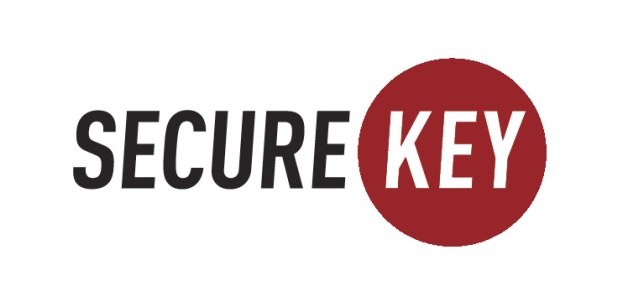Yesterday, SecureKey unveiled a flurry of announcements affecting the future of the company: $27 million in funding; backed by many of Canada’s leading financial institutions — RBC, CIBC, Desjardins, TD, BMO, and Bank of Nova Scotia; with founder Greg Wolfond returning to lead the charge as CEO.
Speaking with BetaKit, Wolfond said he hasn’t returned to launch a stand-alone product: he wants to foster an entire ecosystem. While the newly returned CEO said it was difficult to share specific details of the company’s plan, he described the use cases where it would fit: currently, whenever a customer has to do an activity that requires verifying their identity — like opening a bank account, proving who they are at a government institution, or signing up for a new phone — it can take up a lot of time because of this process of identity verification.
“What if we could make it easier so that you’re in control, and you can share what info you want when you want, and get stuff done much quicker? Like an Uberization of everything.”
“There’s got to be a better way to put the consumer in the middle,” said Wolfond. “So If I wanted to share with Rogers that I live at this address, I can have one of my banks attest that that is the truth and share my credit score, and I can open an account in seconds as opposed to 35 minutes. If I can do that with privacy, the person giving me my information doesn’t know who I’m sharing this information with, and the receiver doesn’t need to know all of my information since they can only get stuff they need and I consent to. We’re going to have a system that gets things done more efficiently.”
Currently, SecureKey’s services make it easier to login to government services — like accessing Canada Revenue Agency documents — by connecting a consumer’s ID to a device, which eliminates the need for a password. But Wolfond thinks that SecureKey can go beyond that, and have institutions and governments working together seamlessly by leveraging SecureKey’s technology.
“What if I want to see my health records and get my test results? There’s no sure and trusted way that governments let me login to do that because they can’t trust the login,” Wolfond said. “But we think that if we bring in the strength of bank logins, and telcos can say you’re on the device, and the province can say they can check the face and that’s actually you using it; this combination of those digital assets together will make all these experiences a click away with privacy and trust.”
“Canada is a great model to follow, and it’s small enough that we can get stuff done.”
SecureKey’s ambitious ecosystem vision is the reason why established financial institutions have made the commitment to help build out the technology. Startups are in the best position to accelerate technology in a way a bank can’t, and as SecureKey has been working in the authentication space since 2007, Wolfond said that the banks trust the company to be at the centre of setting a standard.
“When you’re trying to build something that’s this national and at scale, banks are a huge component of this with their security and trust,” said Wolfond. “But they recognize that we need to bring in the provinces and the federal government and the telcos. They need someone to go and do that, and it can’t be one or two banks or one telco or one bank. It needs to be everybody.”
Interestingly, while many lament that Canada’s strict regulatory system is an impediment to innovation, Wolfond said that this is actually a strength for what he’s building — and the reason why SecureKey is committed to building out the tech in Canada before releasing it on a global scale.
“The regulations are strict enough that we’re among the safest in the world. If you can meet those regulations and make it work, then others want to follow that model,” Wolfond said. “Canada is a great model to follow, and it’s small enough that we can get stuff done, but trusted enough that once it’s done and vetted here, it has a lot of resonance in other countries we go to.”
Like all entrepreneurs, Wolfond believes that SecureKey is on the cusp of changing the world. He’s used to building technology that can scale to that level, which he did when he worked to automate bank branches with Footprint Software in the ‘80s and ‘90s. He did it again with 724 Solutions, which, in 2000, was the most successful IPO in Canadian history. It’s also part of the reason why he decided to return as CEO; Charles Walton, who took over as CEO in 2012, was living in Boston and Wolfond said it made more sense for him to jump back in and drive the company’s evolution — though he said that “Charlie is a great friend” that is still helping the company with its work.
“What we’re talking about is fundamental. If I asked you what your digital identity is — no one really knows what digital identity is. We know we give too much data to Google and Facebook and we know they market on that data, and everyone wishes that we had a bit more privacy and security,” Wolfond said. “But what if we could make it easier so you’re in control on the internet, and you can share what you want when you want, and get stuff done much quicker? Like an Uberization of everything.”


